The Transat returns for 2016, heads to New York
Published on September 1st, 2015
The first ever single-handed ocean yacht race, that was originally staged in 1960, is set to return in 2016 when some of the world’s best solo sailors and most spectacular yachts will take on the classic 2,800-mile course of The Transat, from Britain to the United States.
Fittingly the 2016 edition is returning to its original course with the start from The City of Plymouth on May 2nd and the finish line off Manhattan, New York, for the first time since the inaugural race 55 years ago.
Hervé Favre, Offshore Sailing Events Director of race owners and organisers OC Sport said: “The Transat is going back to its roots, and we are delighted to finish in the same host venue used in the very first edition in 1960.
“The finish in New York is going to be a fantastic spectacle for both the sailors and the public. With the backdrop of the cities skyscrapers and the Statue of Liberty, it is an iconic venue. This race is a piece of living history and it is a hugely exciting time to be able to build on that in this modern day. We can truly say The Transat 2016 is the rebirth of a classic.”
One of the classics of world sailing, The Transat has made the names of some of the greatest yachtsmen and women of the modern era, among them Sir Francis Chichester, Eric Tabarly, Dame Ellen MacArthur, Philippe Poupon, Loïck Peyron and Michel Desjoyeaux. It offers a tough and unrelenting challenge to windward across the wastes of the north Atlantic where hazards include ferocious storms, icebergs, freezing fog, whales, and debris in the water.
Over the years, The Transat has proved a testbed for the latest innovations in yacht design and winning times have cascaded down from 40 days in 1960. The current monohull (IMOCA 60) record is 12 days, 11 hours and 45 minutes set by Loïck Peyron (FRA) on board Gitana in 2008. The multihull (60ft) record is an astonishing 8 days, 8 hours, 29 minutes set by Michel Desjoyeaux (FRA) on board Géant in 2004.
Peyron, who has won The Transat three times, commented: “The history of The Transat is over 50 years old, and to be going back to New York is going back to its origins, to the real crossing. It is a symbolic city.
“To me it is a special race. The northern route is very tough as there are a lot of things to manage and it is a great challenge to be alone on the boat racing against other people. For the IMOCA 60 class, in my opinion it is the best way to be ready for the Vendée Globe.” And when asked if we would see him on the startline in 2016: “It could be a nice story for me to return to The Transat. I never say no…!”
Classes invited to take part in 2016 edition include Class 40 monohulls (40ft) and Multi 50 multihulls (50ft). Alongside them will be the IMOCA 60 Class (60ft), the world’s leading solo class, many of which will go on to contest the 2016 Vendée Globe non-stop solo round world race, and what are likely to be the fastest entries, the Ultime multihulls, measuring anything from 60ft.
Entries will open with the publication of the Notice of Race in the comings weeks, with organisers OC Sport expecting around 40 boats on the startline on 2nd May. Teams interested in competing in The Transat, please contact Hervé Favre.
Event Website
Report by Event Media
About the Transat:
The OSTAR (Observer Singlehanded Trans-Atlantic Race) was created in 1960 by a handful of pioneering sailors. The race was organised every four years by the Royal Western Yacht Club (RWYC) from 1960 through to the 2000 event, albeit with a lot of involvement from the French event organiser Pen Duick in the 90s, in order to cater for the demands of the professional campaigns that dominated the event. After the 2000 edition, OC Sport stepped in to develop the event and acquired the rights to the professional part. OC Sport organised The Transat in 2004 and 2008, the 2012 edition was deferred at the request of IMOCA (the largest competing class).
The RWYC continues to organise a solo transatlantic race for Corinthian and non-professional sailors that is still known as the (O)STAR,. This race usually falls a year after the professional big boat race ie 2005, 2009, 2013, 2017. Both the amateur Yacht Club event and The Transat have the right to link to the history of the original race created in 1960, and to the rich history it has produced.
The first race was competed by just a handful of pioneering sailors including Francis Chichester and Blondie Hasler who coined the phrase: “One man, one boat, the ocean.” There has been tragedy, dramatic rescues and exceptional drama since the race began in 1960. Over time The Transat, as it is known today, has evolved and now serves the professional end of offshore sailing. But there are few modern day races that can reflect on such a long and outstanding history.
Monohull IMOCA 60 record: 12 days, 11 hours and 45 minutes set by Loick Peyron (FRA) on board Gitana in 2008. Multihull 60ft record: 8 days, 8 hours, 29 minutes set by Michel Desjoyeaux (FRA) on board Géant in 2004.


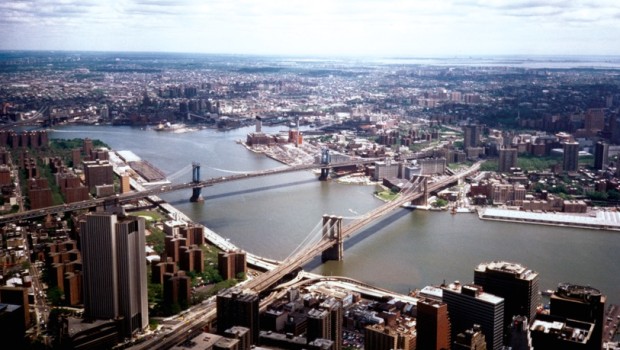


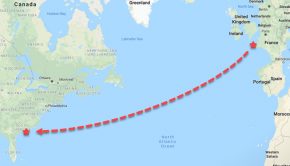
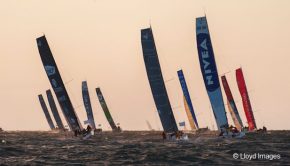
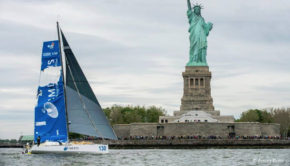
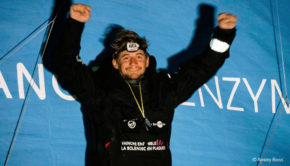
 We’ll keep your information safe.
We’ll keep your information safe.